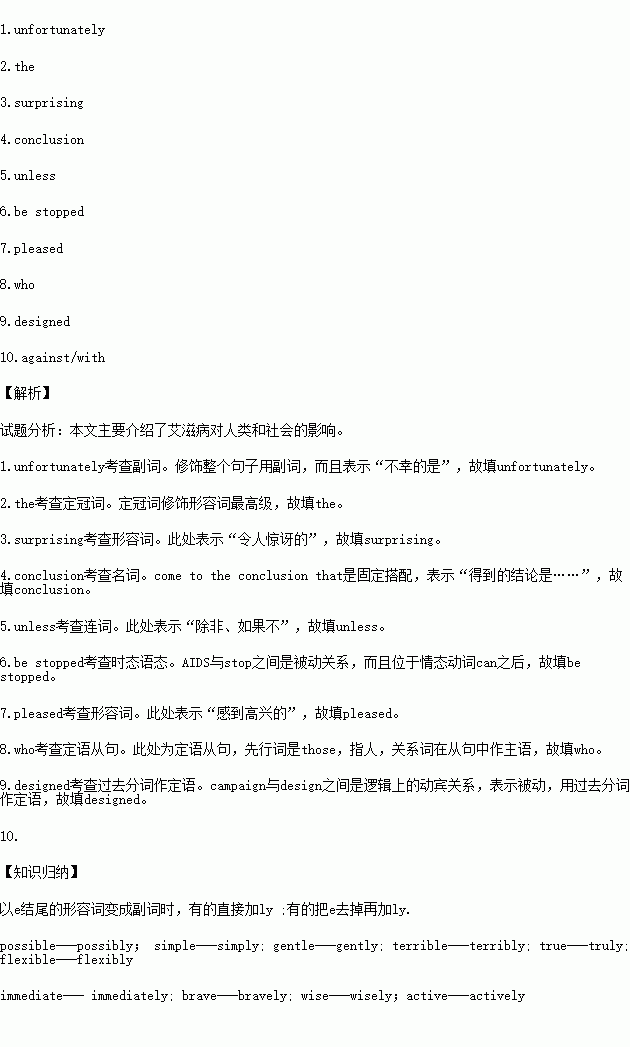题目内容
阅读下面材料,在空白处填入适当的内容(1个单词)或括号中单词的正确形式。
Today so many people are talking about AIDS, for which, 1._________ (fortunate),there is no cure now. When we talk about its influence on our society, this disease is 2._________ most severe public health problem of all that we are facing in the 21st century. It is spreading at a(n) 3._________ (surprise) speed, especially in Africa.
The UN AIDS organizations have come to the 4._________ (conclude) that in the past 20 years, 20 million people have died of AIDS. And this figure will be three times bigger in the next two decades 5.___________ measures are taken in poor countries. Only if people change their basic behavior in time, can AIDS 6.__________(stop) from spreading. For example, in San Francisco, the rate fell greatly when a serious program was carried out. People were 7._________ (please) to change their behavior when they realized how serious a risk they were taking.
Experts think in order to get the message across to those 8.__________ don’t realize the seriousness of AIDS, a well 9.__________ (design) educational campaign is the only thing at the moment that can help. It would be criminal not to put it into practice. So everyone has a share of responsibility in the fight 10.__________AIDS.
 世纪百通期末金卷系列答案
世纪百通期末金卷系列答案
